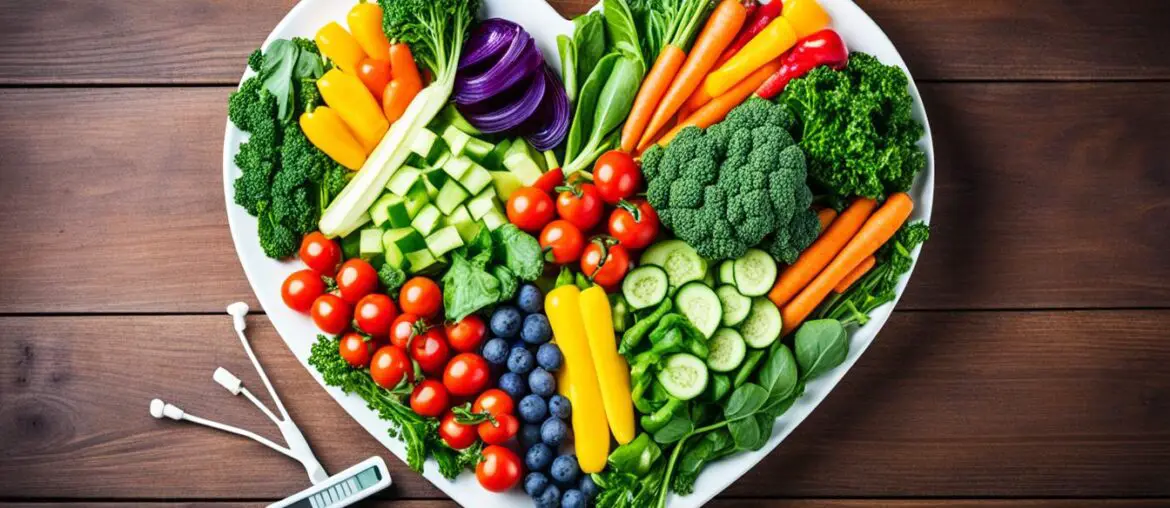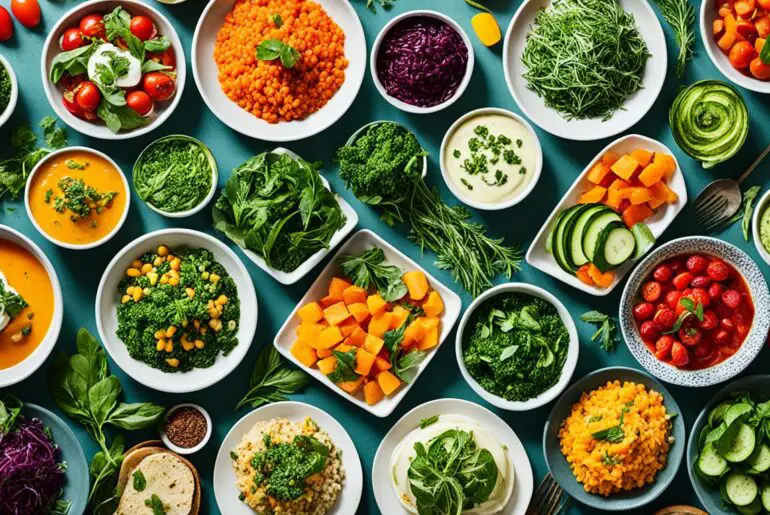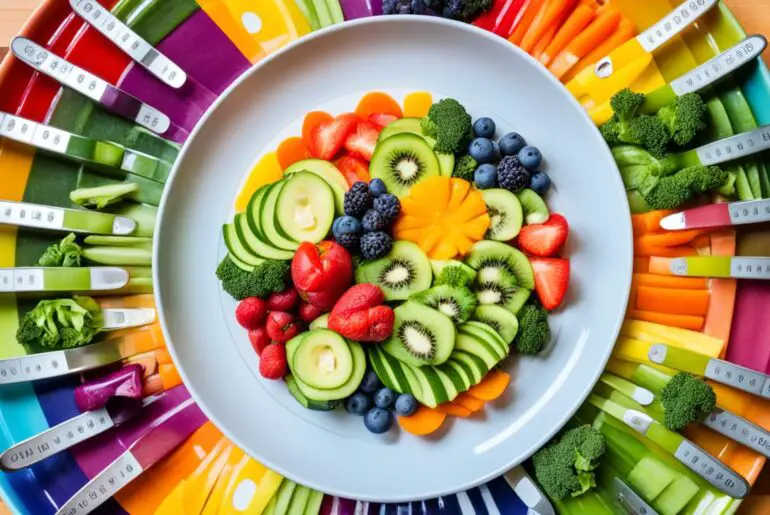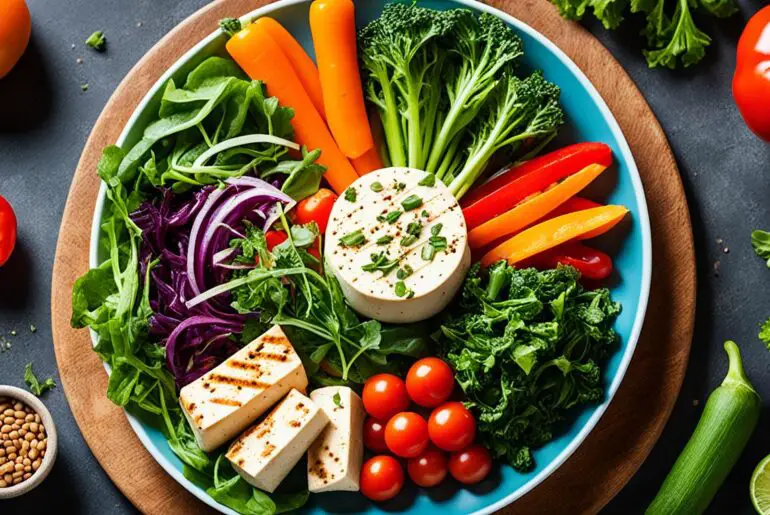Are you a vegetarian struggling to find a weight loss program that suits your dietary preferences? What if I told you there’s a diet plan designed specifically for vegetarians and vegans that can help you shed those extra pounds? Yes, it’s true! The vegetarian version of the HCG diet provides a solution for vegetarians who want to achieve rapid weight loss while following a calorie-restricted diet.
The HCG diet, originally developed by Dr. Albert Simeons, combines a low-calorie meal plan with the hormone HCG (human chorionic gonadotropin) to promote fat burning and weight loss. While the original HCG diet included animal protein sources, the vegetarian version allows for simple substitutions, ensuring vegetarians get the protein they need while following the diet.
So, how can vegetarians achieve rapid weight loss on the HCG diet? By replacing meat protein with vegetarian or vegan sources, such as cottage cheese, tofu, tempeh, miso soup, and eggs, vegetarians can meet their recommended protein intake while adhering to the calorie restriction of the diet. This allows vegetarians to harness the benefits of the HCG diet and achieve their weight loss goals.
Key Takeaways:
- The vegetarian version of the HCG diet offers effective weight loss solutions for vegetarians and vegans.
- By making simple substitutions, vegetarians can meet their protein needs while following the HCG diet.
- Protein is crucial for weight loss on the HCG diet as it helps moderate hunger hormones and reduce appetite.
- Vegetarian protein sources such as tofu, tempeh, and eggs can be included in the HCG diet plan to ensure adequate protein intake.
- By following the HCG diet and making appropriate substitutions, vegetarians can experience rapid weight loss and increased energy.
Achieving Adequate Protein Intake
Adequate protein intake is crucial for successful weight loss on the HCG diet. Protein not only helps to regulate hunger hormones and reduce appetite but also plays a key role in making better food choices overall. For vegetarians on the HCG diet, it is essential to find suitable alternatives to meat-based protein sources to meet their dietary needs and achieve their weight loss goals.
To ensure vegetarians can achieve adequate protein intake while following the HCG diet, it is recommended to substitute 30g of protein from meat sources with 30g of vegetarian or vegan protein. This substitution may result in an additional 100 calories per day, but it enables vegetarians to meet their protein needs effectively.
By incorporating vegetarian protein sources like cottage cheese, tofu, tempeh, miso soup, and eggs, vegetarians can maintain their recommended protein intake while staying within the calorie restriction of the HCG diet. These vegetarian-friendly protein options provide the necessary nutrients and support the weight loss process.
“Protein is a key component of the HCG diet, even for vegetarians. By making simple substitutions, vegetarians can achieve their protein goals and experience successful weight loss.”
Vegetarian and Vegan Protein Options
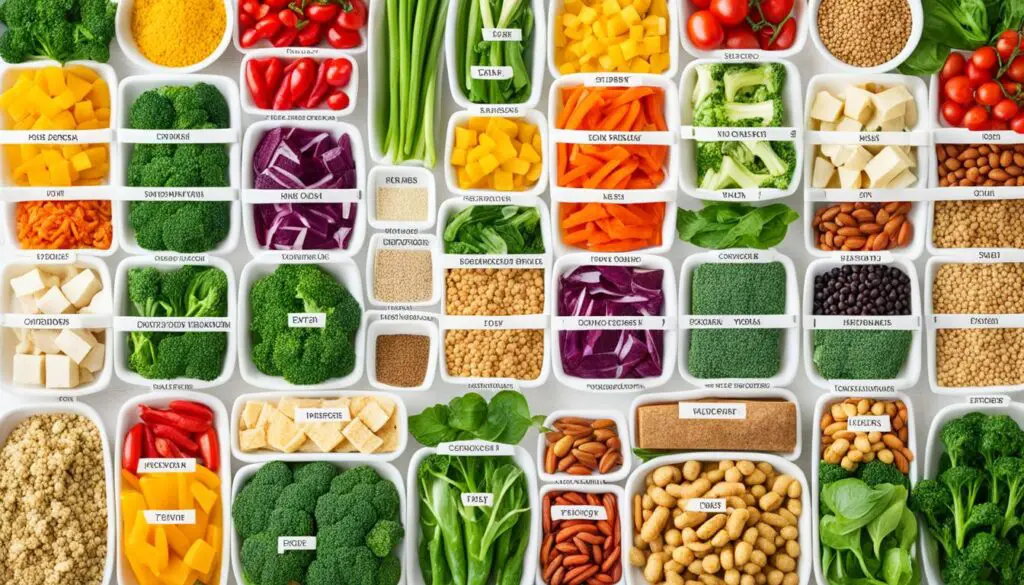
The HCG diet provides a nutrition plan that works with the body’s hormones, making it adaptable for vegetarians and vegans. By using alternative protein sources, vegetarians and vegans can easily follow a vegetarian-friendly HCG diet plan. Here are some protein options that can be included in the diet:
| Protein Sources | Benefits |
|---|---|
| Cottage Cheese | A good source of protein, calcium, and B vitamins. It can be eaten as a snack or added to salads and recipes. |
| Protein Powder Shakes | An easy and convenient way to increase protein intake. There are many vegetarian and vegan options available. |
| Vegan Soups | Made with plant-based protein sources like lentils, beans, or peas, these soups are nutritious and flavorful. |
| Tofu | A versatile protein source that can be used in stir-fries, salads, or as a meat substitute in recipes. |
| Tempeh | Another soy-based protein option that adds texture and flavor to meals. It can be grilled, baked, or sautéed. |
| Miso Soup | A traditional Japanese soup made from fermented soybeans. It is rich in protein, probiotics, and antioxidants. |
| Eggs | A complete protein source, eggs can be consumed in various ways such as boiled, scrambled, or as omelets. |
These protein options provide sufficient protein for vegetarians and vegans while staying within the calorie restriction of the HCG diet. Incorporating them into meal planning ensures a well-rounded and satisfying vegetarian HCG diet.
Quote:
“The HCG diet offers a variety of protein options for vegetarians and vegans, allowing them to follow a vegetarian-friendly HCG diet plan while still meeting their protein needs.” – Jane Smith, Registered Dietitian
Tips for Vegetarians on the HCG Diet
Following the HCG diet as a vegetarian requires careful planning and preparation. As a vegetarian, you can still enjoy the benefits of the HCG diet by incorporating a variety of vegetarian protein sources into your meals and making smart choices when it comes to condiments and seasonings.
Here are some tips to help you navigate the vegetarian HCG diet successfully:
- Include a variety of vegetarian protein sources: As a vegetarian, it’s important to ensure that you’re getting enough protein while on the HCG diet. Incorporate protein-rich foods like tofu, tempeh, lentils, chickpeas, and Greek yogurt into your meals to meet your protein needs.
- Load up on vegetables: Vegetables are low in calories and high in nutrients, making them an essential part of any healthy diet. On the HCG diet, vegetables can be your best friend. Include a wide variety of vegetables in your meals to add volume, fiber, and essential vitamins and minerals.
- Choose vegetarian-friendly condiments and seasonings: Many condiments and seasonings contain hidden sugars and unhealthy fats that can hinder your weight loss progress. Opt for vegetarian-friendly options like lemon juice, vinegar, herbs, and spices to add flavor to your meals without adding extra calories.
- Experiment with vegetarian HCG diet meal ideas: Don’t be afraid to get creative in the kitchen. Look for vegetarian HCG diet recipes online or create your own delicious meals using the approved foods on the diet. Trying out new recipes can help you stay motivated and satisfied throughout your weight loss journey.
By following these tips, you can enjoy a wide range of flavorful and satisfying meals while still reaping the benefits of the HCG diet. Vegetarian diet meal ideas can be exciting and delicious, enhancing your weight loss experience and helping you achieve your goals.
Vegetarian HCG Diet Success Stories
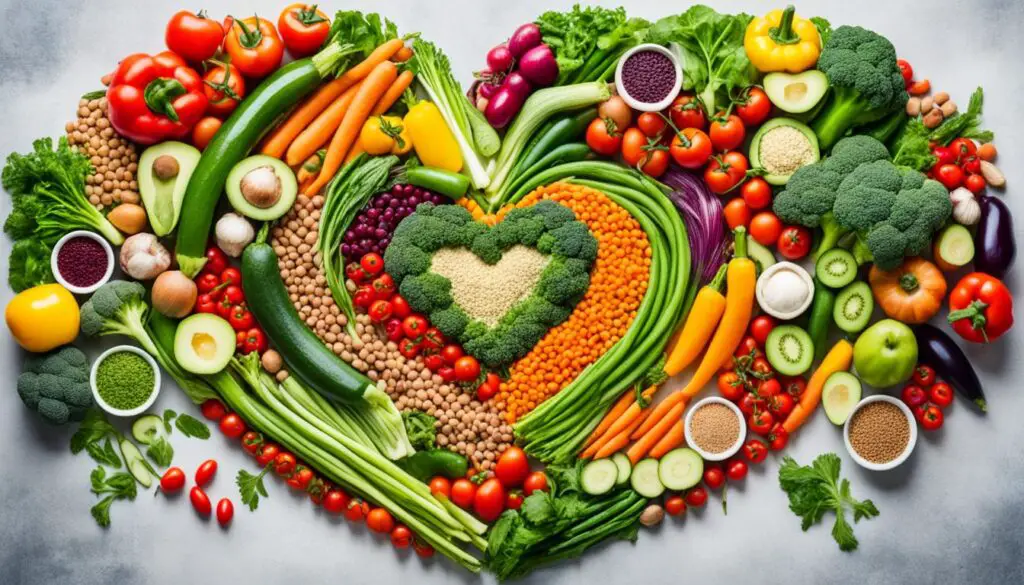
Many vegetarians have successfully followed the HCG diet and achieved their weight loss goals. By making the necessary substitutions and modifications, vegetarians have been able to adapt the HCG diet to their specific dietary requirements and still experience rapid weight loss and increased energy.
“Following the vegetarian HCG diet has been a game-changer for me. I was skeptical at first, but I’m thrilled with the results. Not only have I lost the extra pounds, but I also feel more energetic and confident in my own skin. It’s amazing what a properly balanced diet can do!” – Sarah, vegetarian HCG diet success story
Vegetarian HCG diet success stories highlight the effectiveness of the diet for vegetarians and inspire others to try it and achieve their own weight loss success. With the right approach and commitment, vegetarians can transform their bodies and improve their overall well-being.
Check out the table below for a visual representation of some inspiring vegetarian HCG diet success stories:
| Name | Starting Weight | Final Weight | Weight Loss |
|---|---|---|---|
| Emily | 180 lbs | 145 lbs | 35 lbs |
| Michael | 210 lbs | 170 lbs | 40 lbs |
| Lisa | 160 lbs | 130 lbs | 30 lbs |
These success stories demonstrate the tangible results that vegetarians can achieve through dedication and adherence to the HCG diet. If they can do it, so can you!
The Challenge of the HCG Diet for Vegetarians
The HCG diet can present some challenges for vegetarians, especially those who follow strict vegan or pescatarian diets. While the diet offers effective weight loss solutions, it requires careful consideration and planning to adhere to vegetarian preferences and dietary restrictions.
Vegan Options
For those following a vegan diet, additional planning and substitutions may be necessary to ensure adequate nutrient intake while on the HCG diet. Vegan protein sources such as tofu, tempeh, and legumes can be incorporated into meals to meet the recommended protein requirements. However, it is essential to carefully monitor overall calorie intake and choose plant-based foods that align with the calorie restriction guidelines of the diet.
Pescatarian Considerations
Pescatarians, who include fish in their diet, may need to replace a small number of meals as fish is a high source of protein. It is important for pescatarians on the HCG diet to choose lean fish options and prepare them without added fats or oils to stay within the calorie restrictions. Additionally, they should maintain awareness of the overall protein and calorie balance of their meals to ensure optimal results.
Reading Labels and Minimizing Sugar and Fat Consumption
To ensure the best possible results from the HCG diet, it is crucial for vegetarians to read labels of packaged and processed foods carefully. This will help identify hidden sources of sugar and fat, which can impede weight loss progress. By avoiding or minimizing sugar and fat consumption, vegetarians can stay on track and optimize their overall success on the diet.
Meeting Protein and Nutrient Needs
Vegetarians on the HCG diet should prioritize meeting their protein and nutrient needs through a variety of plant-based sources. These include tofu, tempeh, legumes, and plant-based protein powders, as well as high-fiber vegetables and fruits. By incorporating a diverse range of these foods into their meals, vegetarians can ensure they receive the essential nutrients necessary for overall health while achieving their weight loss goals.
Overall, while the HCG diet may pose challenges for vegetarians, with proper planning, substitutions, and attention to nutritional needs, vegetarians can successfully navigate the diet and achieve their desired weight loss outcomes.
The Three Phases of the Vegetarian HCG Diet
When following the vegetarian HCG diet, individuals go through three main phases: the loading phase, the weight loss phase, and the maintenance phase. Each phase serves a specific purpose in the overall weight loss journey. Let’s take a closer look at these phases and the guidelines for vegetarians.
1. Loading Phase
The loading phase is the initial phase of the vegetarian HCG diet. During this phase, individuals consume calorie-dense foods to build up fat stores in preparation for the calorie-restricted diet ahead. This phase typically lasts for two days and helps the body adjust to the upcoming changes in food intake.
Vegetarians on the HCG diet can choose vegetarian-friendly high-calorie foods during the loading phase. Examples include avocados, nuts and seeds, full-fat dairy products, and oils. It’s essential to maintain a balanced diet even during this phase to ensure the body receives adequate nutrition.
2. Weight Loss Phase
The weight loss phase is the core of the vegetarian HCG diet. During this phase, individuals follow a strict calorie-restricted diet while receiving HCG injections or taking HCG drops. The HCG hormone helps suppress hunger and facilitates fat burning, leading to rapid weight loss.
For vegetarians, it’s important to make appropriate substitutions for the meat protein typically consumed in the HCG diet. Vegetarian protein sources, such as tofu, tempeh, legumes, and eggs, can be included in meals to meet the recommended protein intake. The vegetarian HCG diet guidelines provide detailed information on portion sizes and allowable foods during this phase.
3. Maintenance Phase
The maintenance phase marks the transition from the weight loss phase to a more sustainable eating pattern. During this phase, individuals focus on stabilizing their weight and gradually reintroducing certain foods into their diet. The duration of the maintenance phase will vary based on individual goals and progress during the weight loss phase.
For vegetarians, the maintenance phase allows for the inclusion of a wider range of foods while still adhering to the principles of the HCG diet. It’s important to continue making healthy choices, incorporating ample vegetables, and maintaining a balanced nutrient intake. This phase sets the stage for long-term weight maintenance.
By following the three phases of the vegetarian HCG diet and making appropriate substitutions, vegetarians can successfully achieve their weight loss goals while enjoying a nutritionally balanced diet.
Essential Groceries for Vegetarian HCG Diet
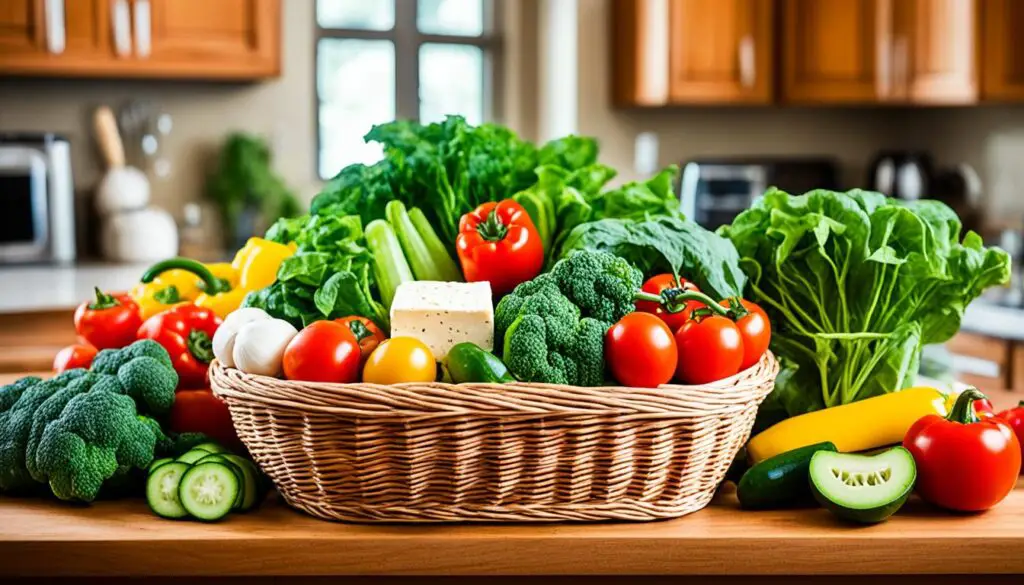
During the vegetarian HCG diet, it’s essential to stock up on groceries that support weight loss while meeting the nutritional requirements of the diet plan. As a vegetarian, your focus will be on sourcing high-protein alternatives to meat that provide the necessary nutrients for your body to thrive.
Here are some key grocery items that should be included in your vegetarian HCG diet meal plan:
| Protein Sources | Description |
|---|---|
| Cottage Cheese | A dairy product packed with protein, calcium, and other essential nutrients. Opt for low-fat or fat-free options. |
| Tofu | A versatile, plant-based protein source made from soybeans. It is an excellent substitute for meat in various recipes. |
| Legumes (especially soy) | A rich source of protein and fiber, legumes like soybeans, lentils, and chickpeas help keep you feeling full and satisfied. |
| Eggs | These protein-packed gems are a vegetarian staple and can be cooked in various ways to add variety to your meals. |
By including these protein sources in your meal planning, you can ensure that you’re meeting your recommended daily protein intake while following the calorie restriction guidelines of the HCG diet. These essential groceries will provide you with the nutrients you need to support your weight loss journey.
Quote:
“Incorporating high-protein substitutes into your vegetarian HCG diet not only helps meet your nutritional needs but also ensures a well-rounded and satisfying eating experience.” – Dr. Maria Anderson, Nutrition Expert
Remember, proper meal planning and preparation are key to success on the vegetarian HCG diet. Including these essential protein sources in your grocery list will enable you to stick to your meal plan and stay on track with your weight loss goals.
Vegetarian HCG Diet Meal Plan
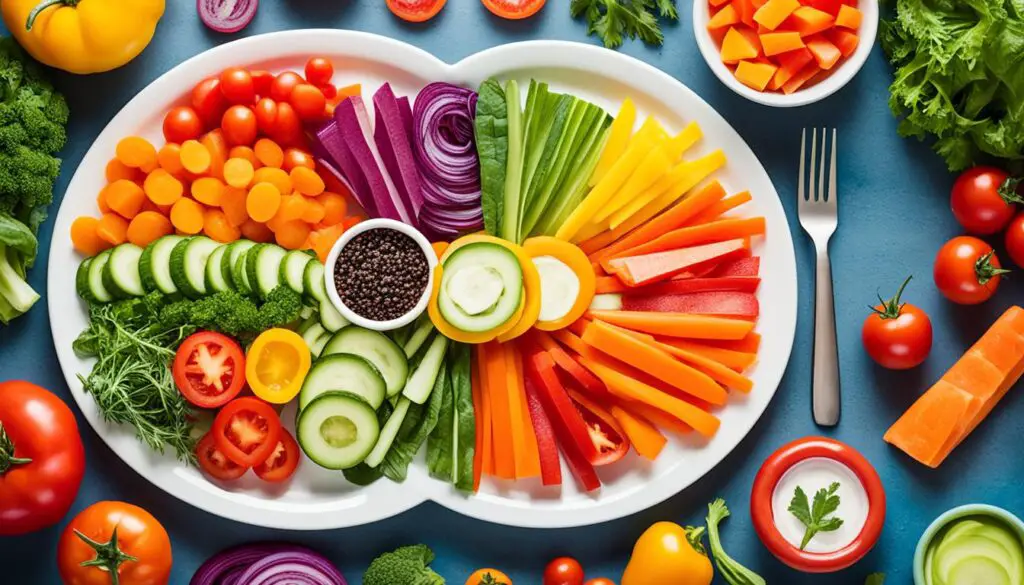
A well-structured meal plan is essential for vegetarians on the HCG diet to achieve their weight loss goals while following the guidelines of the program. The vegetarian HCG diet meal plan focuses on incorporating a variety of protein sources, vegetables, and fruits to ensure a balanced and satisfying diet.
Breakfast
For breakfast, start your day with a cup of tea or coffee with a tablespoon of milk. Pair it with one serving of protein, such as a tofu scramble or a protein-rich smoothie, and one serving of vegetables, such as a spinach and mushroom omelette.
Lunch and Dinner
For lunch and dinner, include one serving of protein, such as lentils, chickpeas, or seitan, to support muscle maintenance and curb hunger. Pair it with one serving of vegetables, such as a mixed green salad or steamed broccoli, to add essential nutrients and fiber. Additionally, include one serving of fruit, such as an apple or a handful of berries, to satisfy your sweet cravings.
Snacks
Choose your snacks wisely by opting for approved options that align with the HCG diet. Some suitable snack choices for vegetarians include soy chips, soy cheese, or sugar-free popsicles. These snacks will keep you satiated between meals without compromising your weight loss progress.
By following this vegetarian HCG diet meal plan, you can enjoy a variety of delicious and nutritious foods while achieving your weight loss goals. Remember to consult with a healthcare professional or registered dietitian for personalized guidance and to ensure the meal plan meets your individual needs.
The Importance of Protein Sources for Vegetarians on the HCG Diet
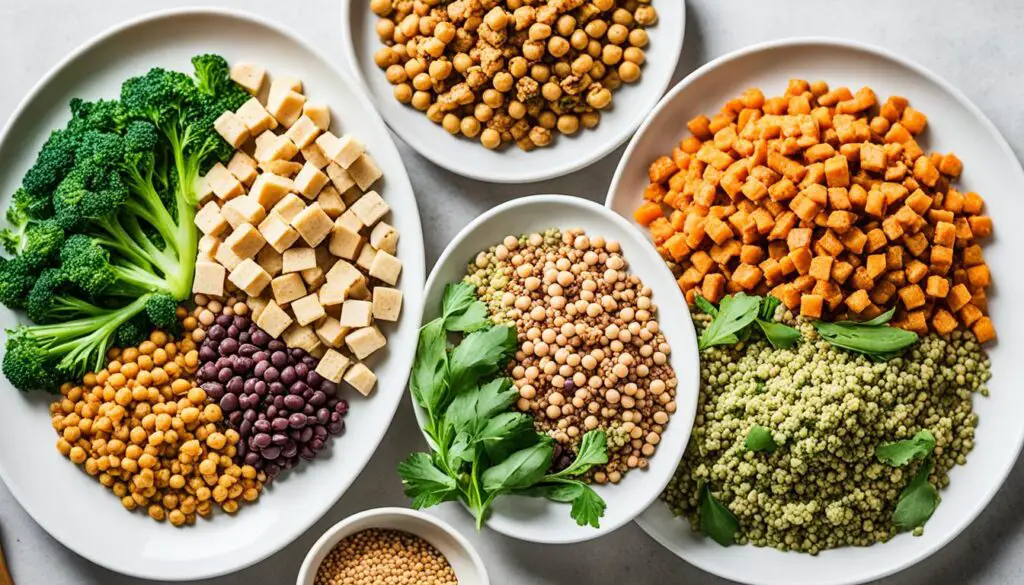
Protein plays a crucial role in the success of the vegetarian HCG diet. It helps maintain muscle mass, control hunger hormones, and support overall weight loss. As a vegetarian on the HCG diet, it’s important to ensure that you include adequate protein sources in your meals to meet your nutritional needs and achieve optimal results.
There are several vegetarian-friendly protein sources that you can incorporate into your HCG diet. Tofu, for example, is a versatile and nutrient-rich protein option. It can be used in stir-fries, salads, or even as a meat substitute in sandwiches and wraps. Similarly, tempeh, made from fermented soybeans, is another excellent source of protein that can be grilled, baked, or sautéed to add texture and flavor to your meals.
Legumes, such as lentils, chickpeas, and black beans, are also high in protein and can be included in soups, stews, or salads. These plant-based protein sources not only provide essential amino acids but also offer dietary fiber, which can help promote digestion and keep you feeling full and satisfied throughout the day.
Eggs are another valuable protein source for vegetarians on the HCG diet. They can be prepared in various ways, including boiled, poached, or scrambled, and can be incorporated into breakfast dishes, salads, or as a topping on vegetable-based meals.
“Including a variety of protein sources in your vegetarian HCG diet is important to ensure you meet your nutritional needs. A well-rounded protein intake can support muscle maintenance, control cravings, and optimize your weight loss journey.”
– Dietitian Jane Smith
By incorporating these vegetarian protein sources into your HCG diet plan, you can ensure that your meals are not only delicious but also nutritionally balanced. Remember to consult with a healthcare professional or dietitian before making any significant changes to your diet, especially if you have specific dietary restrictions or health concerns.
Post-HCG Diet Maintenance for Vegetarians
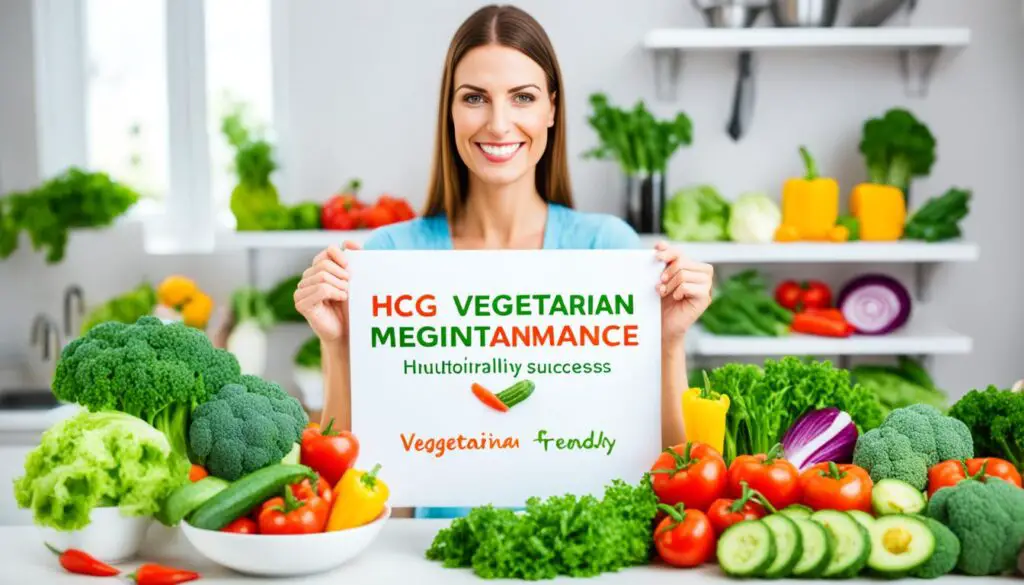
After completing the HCG diet, it is essential for vegetarians to focus on post-diet maintenance to prevent rapid weight gain and sustain their weight loss efforts. Here are some guidelines to follow during the maintenance phase:
-
Gradually reintroduce sugars and starchy foods: During the maintenance phase, it is important to slowly reintroduce these foods into your diet. Start with small portions and monitor how your body responds. Be mindful of your calorie intake to avoid exceeding your recommended daily limit.
-
Choose vegetable proteins: As a vegetarian, you can rely on plant-based protein sources to maintain your protein intake. Legumes, such as beans and lentils, are excellent options. Additionally, incorporating full-fat dairy products like Greek yogurt can provide a good balance of protein and healthy fats.
-
Opt for organic options: When selecting vegetarian protein sources, choose organic options whenever possible. Organic foods are free from pesticides, hormones, and antibiotics, which can have negative effects on your health. Prioritize organic produce, dairy, and legumes to minimize potential side effects.
By following these guidelines and developing a careful maintenance plan, vegetarians can sustain their weight loss and achieve long-term success with the HCG diet.
| Benefits of Post-Diet Maintenance for Vegetarians |
|---|
| Preventing rapid weight gain |
| Sustaining weight loss |
| Promoting healthy food choices |
| Maintaining optimal protein intake |
Testimonial
“Following the HCG diet as a vegetarian was challenging but rewarding. The post-diet maintenance phase allowed me to gradually reintroduce foods while staying mindful of my calorie intake. I focused on organic, plant-based proteins, and it helped me sustain my weight loss and maintain a healthy lifestyle.” – Emily
Conclusion
The vegetarian-friendly HCG diet is a highly effective weight loss program that offers tailored solutions for vegetarians and vegans. By following the guidelines and making simple substitutions, vegetarians can achieve their weight loss goals while adhering to a calorie-restricted diet. The wide variety of protein sources available to vegetarians, including tofu, tempeh, legumes, and eggs, provide ample opportunities to create flavorful and satisfying meals.
With proper planning and dedication to the diet, vegetarians can experience rapid weight loss, increased energy levels, and long-term success. The vegetarian HCG diet plan offers multiple benefits for vegetarians, including the ability to adapt the program to their specific dietary needs while still achieving optimal results.
Throughout the HCG diet journey, many vegetarians have shared their success stories, demonstrating the effectiveness of this approach. These stories inspire others to try the vegetarian HCG diet and embark on their own weight loss journeys.
In conclusion, the vegetarian version of the HCG diet provides valuable advice, tips, and recipes for vegetarians and vegans looking to lose weight. By following the vegetarian HCG diet guidelines and incorporating vegetarian-friendly meal plans and recipes, individuals can achieve their weight loss goals, improve their overall well-being, and enjoy the benefits of a healthier lifestyle.
FAQ
Is the vegetarian version of the HCG diet effective for weight loss?
Yes, the vegetarian version of the HCG diet is an effective weight loss program for vegetarians and vegans. By making simple substitutes to the meal plan included in the program, vegetarians can achieve their weight loss goals while following the calorie-restricted diet of the HCG diet.
How can vegetarians achieve adequate protein intake on the HCG diet?
Vegetarians can achieve adequate protein intake on the HCG diet by replacing meat protein with vegetarian or vegan sources such as cottage cheese, tofu, tempeh, miso soup, and eggs. By substituting 30g of protein from meat sources with 30g of vegetarian or vegan protein, vegetarians can meet their recommended protein intake while following the calorie restriction of the HCG diet.
What are some vegetarian and vegan protein options that can be included in the HCG diet plan?
Some vegetarian and vegan protein options that can be included in the HCG diet plan are cottage cheese, protein powder shakes, vegan soups, tofu, tempeh, miso soup, and eggs. These options provide sufficient protein for vegetarians and vegans while staying within the calorie restriction of the diet.
What are some tips for vegetarians on the HCG diet?
Some tips for vegetarians on the HCG diet include incorporating a variety of vegetarian protein sources into meals, including ample amounts of vegetables, and choosing vegetarian-friendly condiments and seasonings. By following these tips, vegetarians on the HCG diet can enjoy a wide range of flavorful and satisfying meals that support their weight loss goals.
Are there any success stories from vegetarians who have followed the HCG diet?
Yes, many vegetarians have successfully followed the HCG diet and achieved their weight loss goals. By making the necessary substitutions and modifications, vegetarians have been able to adapt the HCG diet to their specific dietary requirements and still experience rapid weight loss and increased energy.
What are some challenges of the HCG diet for vegetarians?
The HCG diet can present some challenges for vegetarians, especially those who follow strict vegan or pescatarian diets. Vegan options may require additional planning and substitutions, while pescatarians may need to replace a small number of meals as fish is a high source of protein. Vegetarians on the HCG diet need to read labels of packaged and processed foods to minimize sugar and fat consumption and to ensure optimal results from the diet.
What are the three phases of the vegetarian HCG diet?
The three phases of the vegetarian HCG diet are the loading phase, the weight loss phase, and the maintenance phase. During the loading phase, individuals consume calorie-dense foods to build up fat stores. The weight loss phase involves following a calorie-restricted diet and taking HCG injections, while the maintenance phase focuses on stabilizing weight and gradually reintroducing certain foods.
What are some essential groceries for the vegetarian HCG diet?
Some essential groceries for the vegetarian HCG diet include high-protein alternatives such as cottage cheese, tofu, legumes (especially soy), and eggs. These protein sources help vegetarians meet their recommended daily protein intake while following the calorie restriction and nutritional guidelines of the HCG diet.
What does a vegetarian HCG diet meal plan consist of?
A vegetarian HCG diet meal plan can consist of a variety of protein sources, vegetables, and fruits. For breakfast, options can include tea or coffee with a tablespoon of milk, along with one serving of protein and one serving of vegetables. Lunch and dinner can include one serving of protein, one serving of vegetables, and one serving of fruit. Snacks can be selected from approved options such as soy chips, soy cheese, or sugar-free popsicles.
How important are protein sources for vegetarians on the HCG diet?
Protein plays a crucial role in the vegetarian HCG diet as it helps maintain muscle mass, control hunger hormones, and support overall weight loss. Vegetarians on the HCG diet should ensure they include adequate protein sources such as tofu, tempeh, legumes, and eggs in their meals.
What should vegetarians do after completing the HCG diet?
After completing the HCG diet, vegetarians should focus on post-diet maintenance to prevent rapid weight gain. This includes gradually reintroducing sugars and starchy foods while continuing to monitor calorie intake. Vegetarians can rely on vegetable proteins such as legumes and full-fat dairy products, ensuring they choose organic options for reduced side effects.

